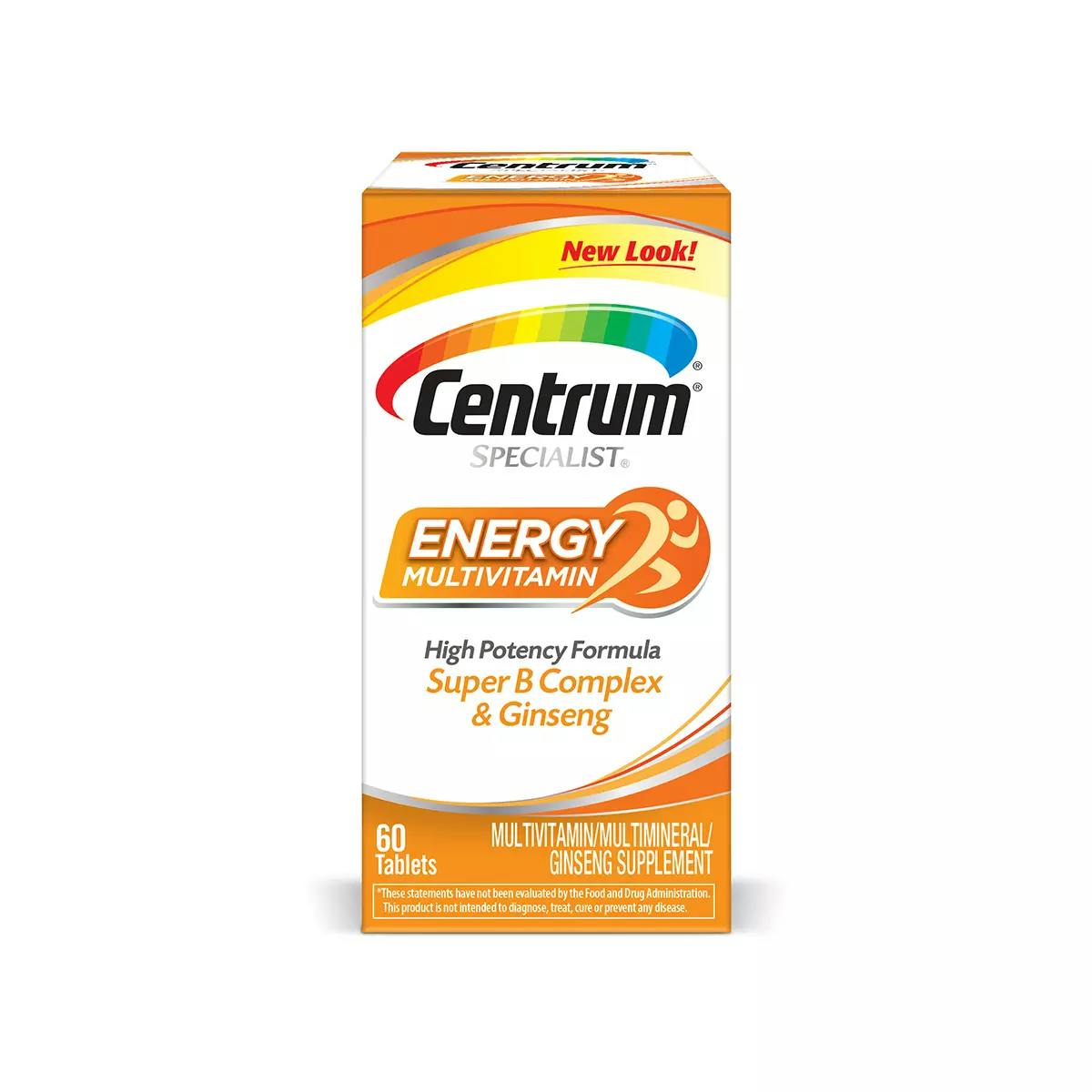Ask the Expert: Cognitive Aging

As part of Haleon, our team at Centrum has a strong commitment to deep human understanding and trusted science. We are proud to have a team of internal experts dedicated to understanding and translating the science of nutrition to help our consumers take care of their health.
To share part of that commitment with you, our own internal expert, Dr. Rachael Patusco, interviews cognitive health expert Dr. Hayley Young to understand more about cognitive aging.
Dr. Patusco: What is cognitive aging?
Dr. Young: Cognitive aging is a broad term that describes a process of gradual, longitudinal changes in cognitive functions that occurs with increasing age. This can include changes in memory, attention, processing speed, language abilities, problem-solving, and executive function. Some cognitive abilities, such as vocabulary, are resilient to brain aging and may even improve with age. Other abilities, such as conceptual reasoning, memory, and processing speed, decline gradually over time.
Dr. P: At what age does cognitive decline start?
Dr. Y: The onset and rate of cognitive decline vary greatly from person to person and are influenced by factors such as genetics, lifestyle, and medical conditions. However, some studies have found that some age-related changes in cognitive function can start as early as the mid-40s. For example, processing speed, working memory, and attention may start to decline in the 40s or 50s, while other cognitive abilities, such as verbal fluency, may not decline until later in life. In addition, it is likely that the magnitude of age-related decline accelerates at older ages, particularly after the age of 60.
It's important to note that cognitive decline is not a uniform process and can vary greatly from person to person. Some individuals may experience significant decline, while others may experience only minor changes. Additionally, the presence of age-related changes in cognitive function does not necessarily indicate the development of a cognitive impairment or dementia. Instead, cognitive decline is often a gradual process that occurs over time, and some individuals may experience more rapid decline than others.
Dr. P: What are normal signs of cognitive aging?
Dr. Y: Some more common signs of cognitive aging include:
- Slower processing speed: As people age, they may take longer to complete tasks that require mental processing, such as solving mathematical problems or responding to and processing information in their environment.
- Decreased working memory: Working memory is the ability to hold and manipulate information in your mind for a short period of time. As people age, they may find it more difficult to use information they have just learned.
- Difficulty learning new information: Older adults may find it harder to learn new information and recall it later.
- Decreased attention span: Older adults may have a harder time maintaining concentration, especially if they are tired or the task is repetitive or boring.
- Reduced ability to multi-task: Older adults may find it harder to switch between tasks and juggle multiple tasks at once.
It's important to note that not all older adults will experience these changes, and minor age-related changes in cognitive function can be compensated for by developing strategies, for example, keeping a ‘to do’ list.
Dr. P: What are factors that impact cognitive aging?
Dr. Y: Cognitive aging is a complex process that is influenced by many factors, both biological and environmental. Some of the most significant factors that impact cognitive aging include:
- Genetics: Genetics play a role in determining the rate and pattern of cognitive aging. Some genetic factors can increase the risk of developing age-related cognitive decline and dementia, while others may provide protection against these conditions.
- Lifestyle factors: Lifestyle factors, such as physical activity, diet, and social engagement, can have a significant impact on cognitive aging. A healthy lifestyle, including regular physical activity, a balanced diet, and mentally stimulating activities can help reduce the risk of cognitive decline.
- Medical conditions: Chronic medical conditions, such as high blood pressure, heart disease, and diabetes, can increase the risk of cognitive decline and dementia. Additionally, medical conditions that affect the brain, such as stroke, can cause direct damage to brain cells and result in cognitive impairment.
- Education and cognitive stimulation: Education and cognitive stimulation can help to build up cognitive reserve, which is thought to provide some protection against age-related cognitive decline.
- Stress: Chronic stress has been linked to an increased risk of cognitive decline and dementia. High levels of stress can lead to oxidative stress and inflammation, which can damage brain cells and result in cognitive impairment.
It's important to note that the impact of these factors can vary greatly from person to person, and the extent and pattern of cognitive aging are influenced by a complex interplay of many factors. Additionally, the impact of some factors, such as lifestyle and medical conditions, can be modified, and making changes in these areas can help reduce the risk of cognitive decline.
Dr. P: What lifestyle habits support healthy aging, including cognitive health?
Dr. Y: There are several lifestyle habits that have been shown to support healthy aging, including cognitive health.
- Exercise: Regular physical activity has been shown to improve cognitive function and reduce the risk of age-related declines in cognitive abilities.
- Healthy diet: Eating a diet rich in fruits, vegetables, whole grains, and healthy fats can help support overall health and cognitive function.
- Mental stimulation: Engaging in mentally stimulating activities such as reading, puzzles, or learning a new skill can help keep the brain active and improve cognitive function.
- Social engagement: Staying socially active and connected with others has been shown to have a positive impact on cognitive function, as well as overall well-being.
- Sleep: Getting adequate sleep is important for overall health; poor sleep has been linked to declines in cognitive function.
- Stress management: Chronic stress has been linked to cognitive decline and dementia. Managing stress through techniques such as meditation, mindfulness, or exercise can be beneficial for cognitive health.
- Avoiding harmful habits: Avoiding habits such as smoking, excessive alcohol consumption, and drug use can help reduce the risk of age-related declines in cognitive function.
It's important to note that while these habits have been shown to support cognitive health, individual experiences may vary, and more research is needed to fully understand the relationship between lifestyle habits and cognitive aging.
Dr. P: How do vitamins/minerals play a role in brain health?
Dr. Y: The brain is a very metabolically active organ. Therefore, normal brain function requires various vitamins, minerals, and other nutrients including B-vitamins, and vitamins C, D and E. Insufficiencies in some nutrients may increase the risk for cognitive decline with age. A balanced diet that includes a variety of foods rich in essential nutrients, along with regular exercise and a healthy lifestyle, is the best way to support brain health.
About the Experts

Dr. Rachael Patusco DCN, RDN, U.S. Centrum Medical Lead
Dr. Patusco is a Principal Scientist on the U.S. Medical Affairs Team and is also a Registered Dietitian Nutritionist. She has a passion for translating the science of nutrition to improving everyday health and wellness for all.

Dr. Hayley Young, PhD
Dr. Young is an Associate Professor in the Department of Psychology at the University of Swansea in the UK. She conducts, presents, and publishes research in the field of cognition and nutrition.











